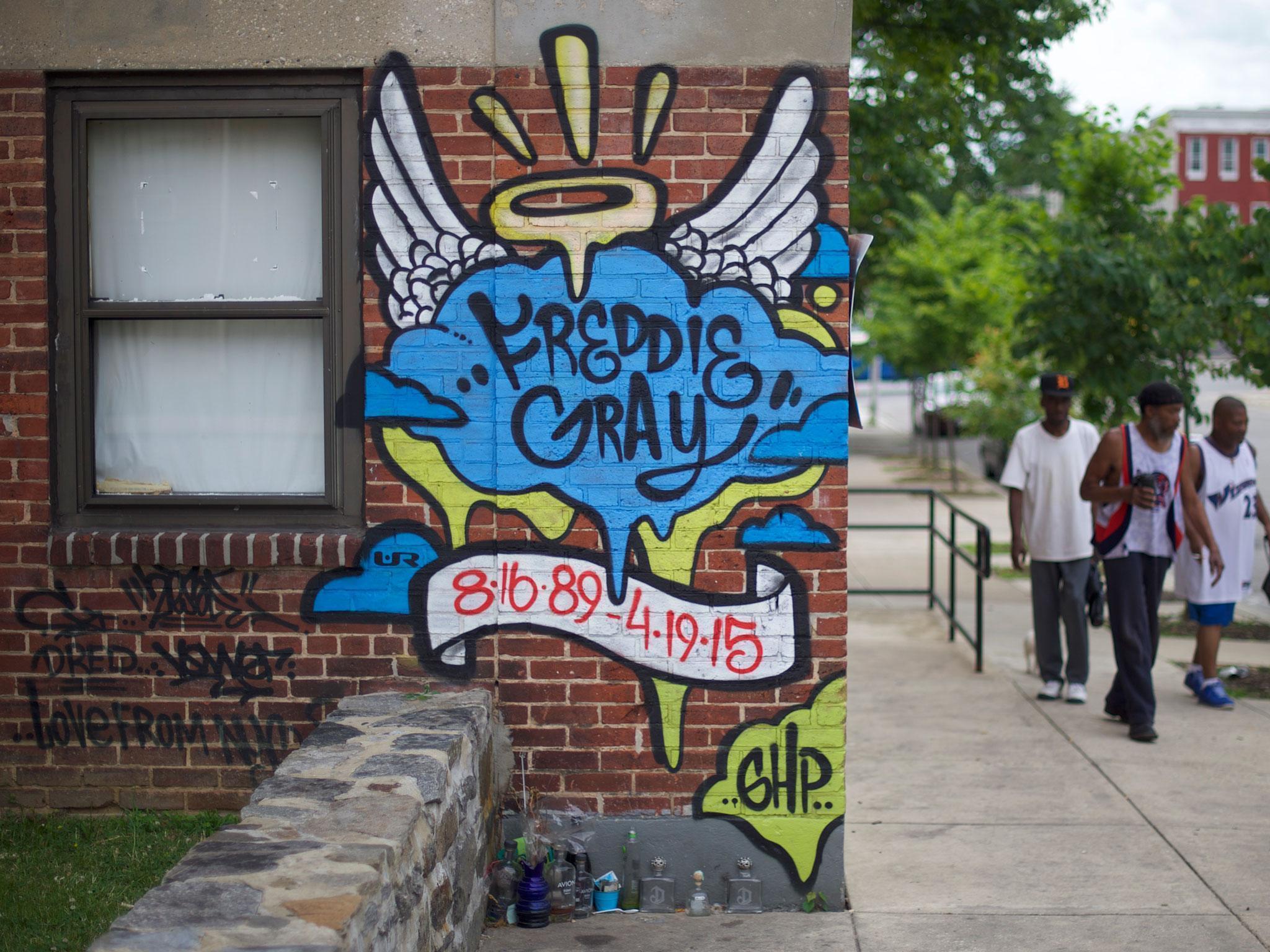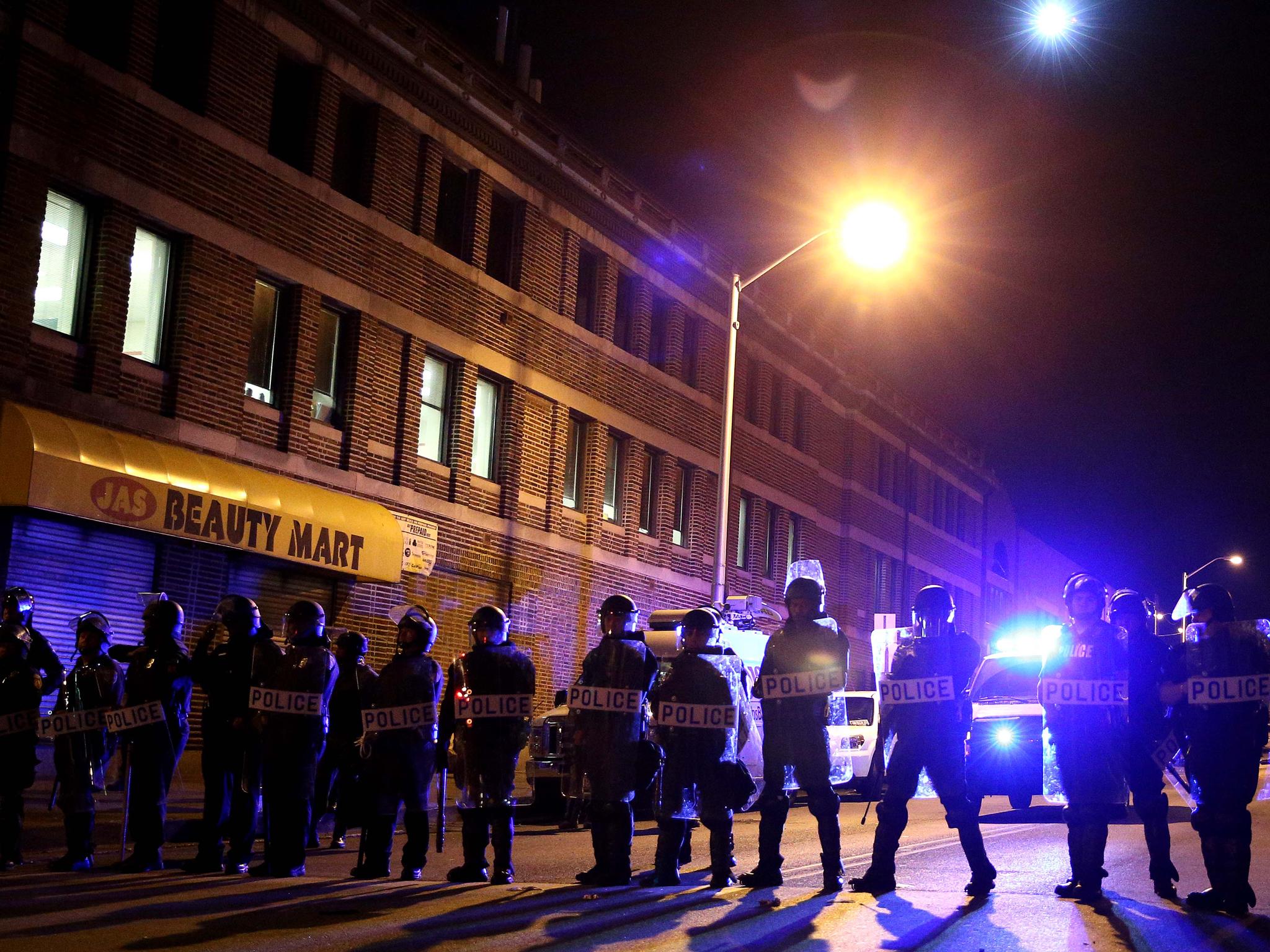Justice Department report: Baltimore police routinely violate rights of black residents
One man found himself stopped by police for no reason 30 times in the last four years. Not a single stop led to criminal charges

For black residents of Baltimore the numbers contained in a Justice Department report detailing consistent and undisguised targeting of members of their community by the police come as no surprise. It’s a story of blatant discrimination – indeed racism – they have been trying to get out for years.
Some sort of remedy may now – at last – be afoot, though it took a tragedy to make it happen. The 2015 death in custody of one black man, 25-year-old Freddie Gray, and the rioting that ensued forced the Justice Department to launch its probe.
“Public trust is critical to effective policing and public safety,” said Attorney General Loretta Lynch. “Our investigation found that Baltimore is a city where the bonds of trust have been broken, and that the Baltimore Police Department engaged in a pattern or practise of unlawful and unconstitutional conduct, ranging from the use of excessive force to unjustified stops, seizures and arrests.”
The blistering report detailing “systemic problems“, in the Baltimore Police Force, was unveiled formally by Mayor Stephanie Rawlings-Blake and Vanita Gupta, head of the Justice Department’s Civil Rights division, on Wednesday, pulls no punches. It is the indictment of extraordinary police misconduct that so many blacks in the city had been waiting for.
Like the man, in his mid-50s, identified by the report who, like so many other blacks guilty of doing nothing more than walking the streets, found himself stopped for no reason no less than 30 times in the last four years. Not a single stop led to any criminal charges being filed against him.
It is the data reviewed by the Justice Department and detailed in its 160-page report that hits the hardest, however. Black residents accounted for 95 per cent of the 410 individuals who were stopped by police more than ten times in the last five and a half years. This in a city where blacks make up just 63 per cent of the overall population.
The picture is more or less the same for drivers in the city. Blacks make up 60 per cent of its motorists. Yet, they account for 82 percent of traffic stops.
So as to make sure its findings are not lost on anyone, the authors of the report also included an anecdote of training that was given to police on the beat that involved an easy-to-use template to use every time they made a trespassing arrest of a citizen and needed to fill out a report. It included a default description of the detainee: “A BLACK MALE”.
It was Ms Rawlings-Blake, an African-American, who requested the Justice Department launch an investigation in the wake of the death of Mr Gray, which sparked days of unrest on her city’s streets last April. That in turn led to the charges being filed against the six police officers involved in his arrest and subsequent detention. Successive prosecutions of those officers subsequently faltered in court and charges against the last officer have been dropped.

“The findings are challenging to hear. but let me be clear, I never sugarcoat our problems nor will I run away from our most problems,” Ms Rawlings-Blake said. “The transparency of the report offers a crucial foundation if were are to move forward."
If change does come, it will begin with the negotiation of a so-called “consent decree” agreement between the Department and the city under which the police department will be compelled to undertake root-and-branch reforms of how its officers operate and interact with minorities.
It will fit into a pattern of such actions by the administration of President Barack Obama. His Justice Department, under Ms Lynch and her predecessor, Attorney General Eric Holder, has similarly cracked down on the police departments of multiple other cities, from Ferguson, Missouri, the scene of the shooting of a 18-year-old Michael Brown that kicked off the Black Lives Matter movement, to Cleveland and Seattle.
“It’s so very import that we get this right,” Ms Rawlings-Blake said at the Wednesday press conference. The report was described to reporters by Ms Gupta. Offering another detail, she noted that 44 per cent of police stops happened in one small portion of the city that accounts for just 11 per cent of the city’s population, where residents are overwhelmingly black.
“There is reasonable cause to believe that the BPD engages in a pattern of practice… of making unconstitutional, searches and arrest, using enforcement strategies,” which had led to a “deep eroded metal trust” between the police department and the citizens it is meant to serve, Ms Gupta concluded.
Bookmark popover
Removed from bookmarks